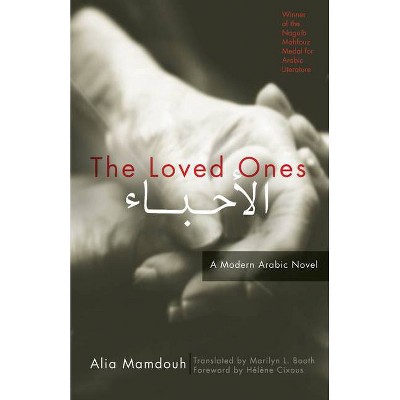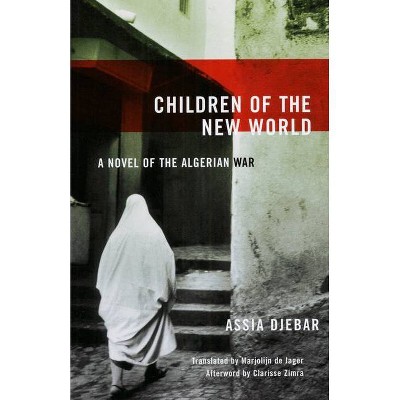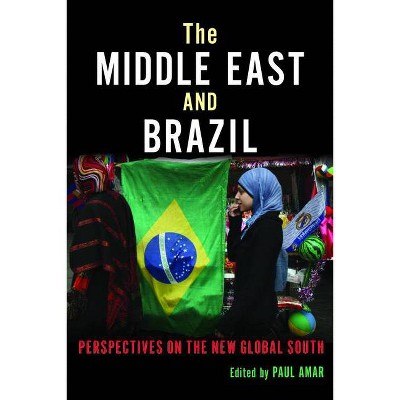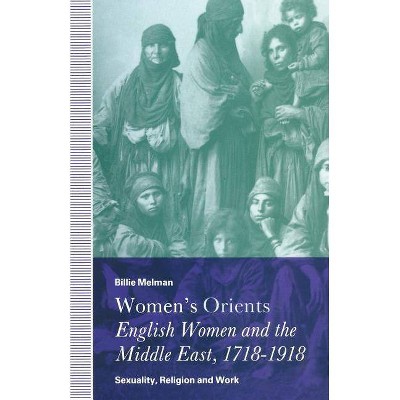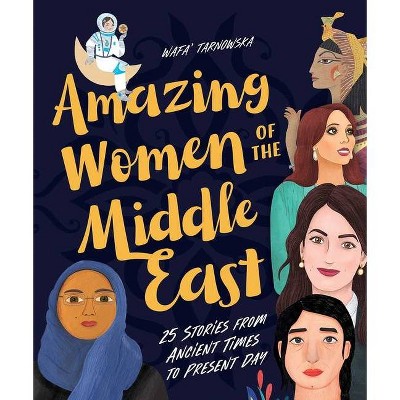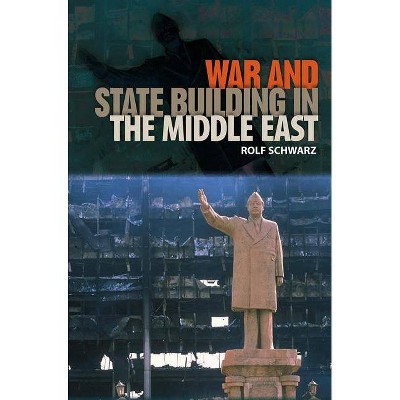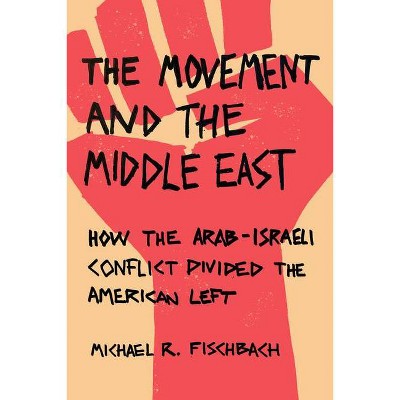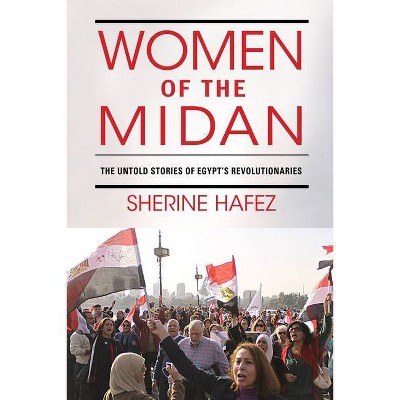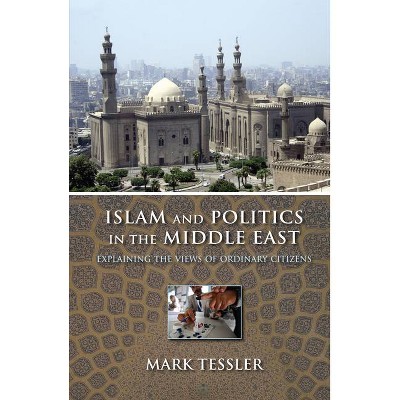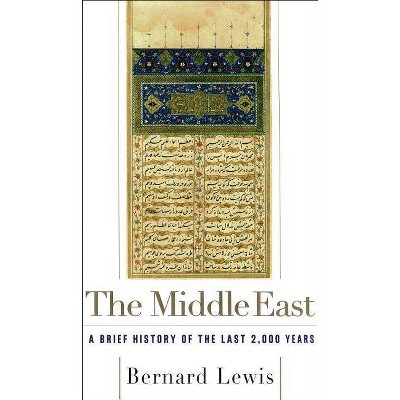Touba and the Meaning of Night - (Women Writing the Middle East) by Shahrnush Parsipur (Paperback)
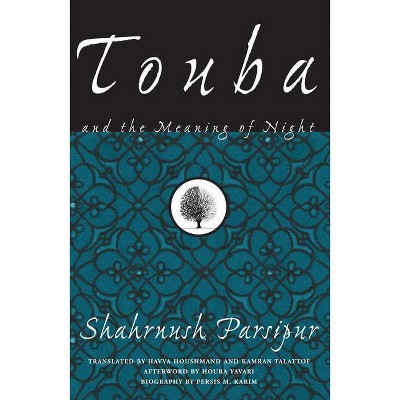
Similar Products
Products of same category from the store
AllProduct info
<p/><br></br><p><b> About the Book </b></p></br></br>An epic masterpiece by Iran's most celebrated living author, Shahrnush Parsipur.<br><p/><br></br><p><b> Book Synopsis </b></p></br></br><p><strong>An Iranian woman forges her own path through life in this "stylishly original contribution to modern feminist literature" (<em>Publishers Weekly</em>).</strong></p> <p>After her father's death, fourteen-year-old Touba takes her family's financial security into her own hands by proposing to a fifty-two-year-old relative. But, intimidated by her outspoken nature, Touba's husband soon divorces her. When she marries again, it is to a prince with whom she experiences tenderness and physical passion and bears four children--but their relationship sours when he proves unfaithful. Touba is granted a divorce, and as her unconventional life continues, she becomes the matriarch of an ever-changing household of family members and refugees . . .</p> <p>Hailed as "one of the unsurpassed masterpieces of modern Persian literature" (Iranian.com), <em>Touba and the Meaning of Night</em> explores the ongoing tensions between rationalism and mysticism, tradition and modernity, male dominance and female will--all from a distinctly Iranian viewpoint. Defying both Western stereotypes of Iranian women and expectations of literary form, this beautiful novel reflects the unique voice of its author as well as an important tradition in Persian women's writing.</p> Born in Iran in 1946, <strong>Shahrnush Parsipur</strong> began her career as a fiction writer and producer at Iranian National Television and Radio. She was imprisoned for nearly five years by the Islamist government without being formally charged. Shortly after her release, she published <em>Women Without Men</em> and was arrested and jailed again, this time for her frank and defiant portrayal of women's sexuality. While still banned in Iran, the novel became an underground bestseller there, and has been translated into many languages around the world. She now lives in exile in Northern California.<p/><br></br><p><b> Review Quotes </b></p></br></br><br>Bold, insightful . . . a stylishly original contribution to modern feminist literature. --<b><i>Publishers Weekly</b></i> <p/>Parsipur's novel carries the reader on a mystical and emotional odyssey spanning eight decades of Iranian cultural, political, and religious history . . . replete with juxtapositions of mysticism and historical fact, Parsipur's novel is a rewarding and enlightening encapsulation of her country's recent past. --<b><i>Booklist</b></i> <p/>[Touba and the Meaning of Night] is both a sweeping chronicle of modern Iranian history and a study of the plight of twentieth-century Iranian women. . . [displaying] deft utilization of magic realism and Persian myths . . . rich and well-crafted. For all fiction collections. --<b><i>Library Journal</i> (starred review)</b> <p/>Shahrnush Parsipur's Touba and the Meaning of Night is... one of the unsurpassed masterpieces of modern Persian literature. --<b>Iranian.com</b> <p/>With America and Iran engaged in a volatile stand-off, this now banned 1989 novel by one of Iran's most distinguished writers provides profound insights into the conflict between religion and modernity in modern Persia. . . . A feminist tour de force . . . among the classics of twentieth-century Middle Eastern Literature. --<b><i>Tikkun</i> magazine</b> <p/>Shahrnush Parsipur makes a case against every kind of fundamentalism. But above all she narrates a great history book and a great story. Not only does she borrow the oriental coin of Sherherazade, but she also avails herself artfully of the narrative technique of Western masters from Umberto Ecco to Gabrielle García Marquez. --<b><i>Die Zeit</i> (Germany)</b> <p/>Shahrnush Parsipur has achieved an unusually powerful and vivid portrait of her homeland. --<b><i>Der Standard</i> (Austria)</b> <p/>Like Parsipur herself, her protagonists are women whose rebellions are not merely political but existential, against a system that denies them their individual dignity and stunts their potentials for growth. --<b>Azar Nafisi, author of <i>Reading Lolita in Tehran</b></i> <p/>Houshmand and Talattof have rendered a moving translation of Shahrnush Parsipur's masterpiece. The tale combines realism with flights of fantasy in a tale set against the backdrop of modern Iranian history. --<b>Beth Baron, author of <i>Egypt as a Woman</b></i><br><p/><br></br><p><b> About the Author </b></p></br></br>Born in Iran in 1946, <b>Shahrnush Parsipur</b> began her career as a fiction writer and producer at Iranian National Television and Radio. She was imprisoned for nearly five years by the Islamist government without being formally charged. Shortly after her release, she published <i>Women Without Men</i> and was arrested and jailed again, this time for her frank and defiant portrayal of women's sexuality. While still banned in Iran, the novel became an underground bestseller there, and has been translated into many languages around the world. She is also the author of <i>Touba and the Meaning of Night</i>, among many other books, and now lives in exile in Northern California.
Price History
Price Archive shows prices from various stores, lets you see history and find the cheapest. There is no actual sale on the website. For all support, inquiry and suggestion messages communication@pricearchive.us
